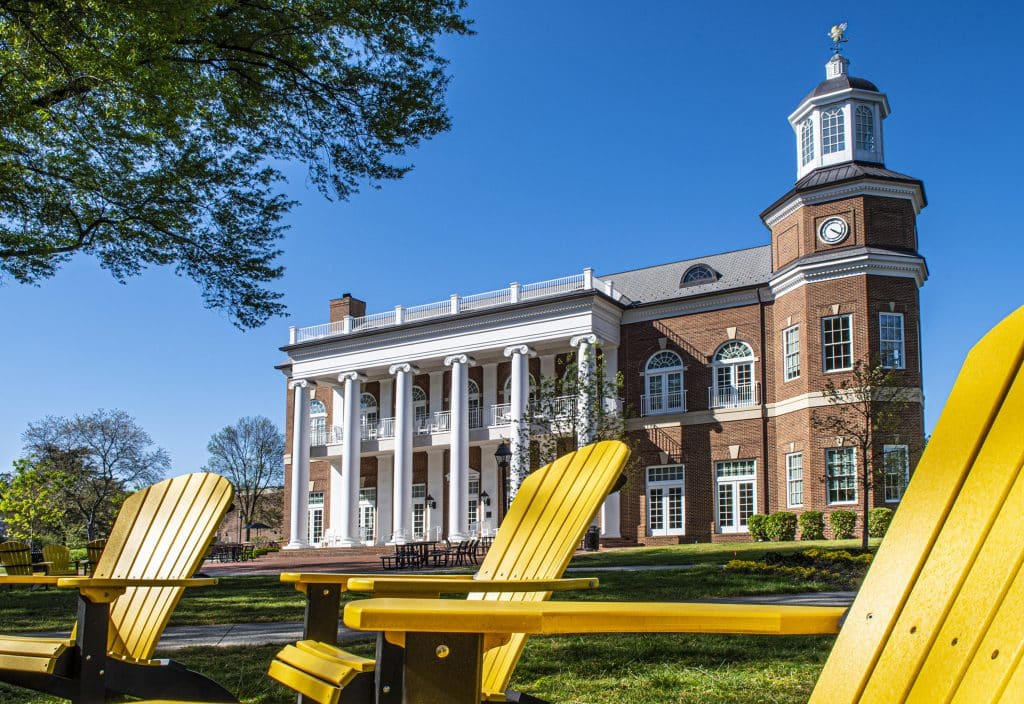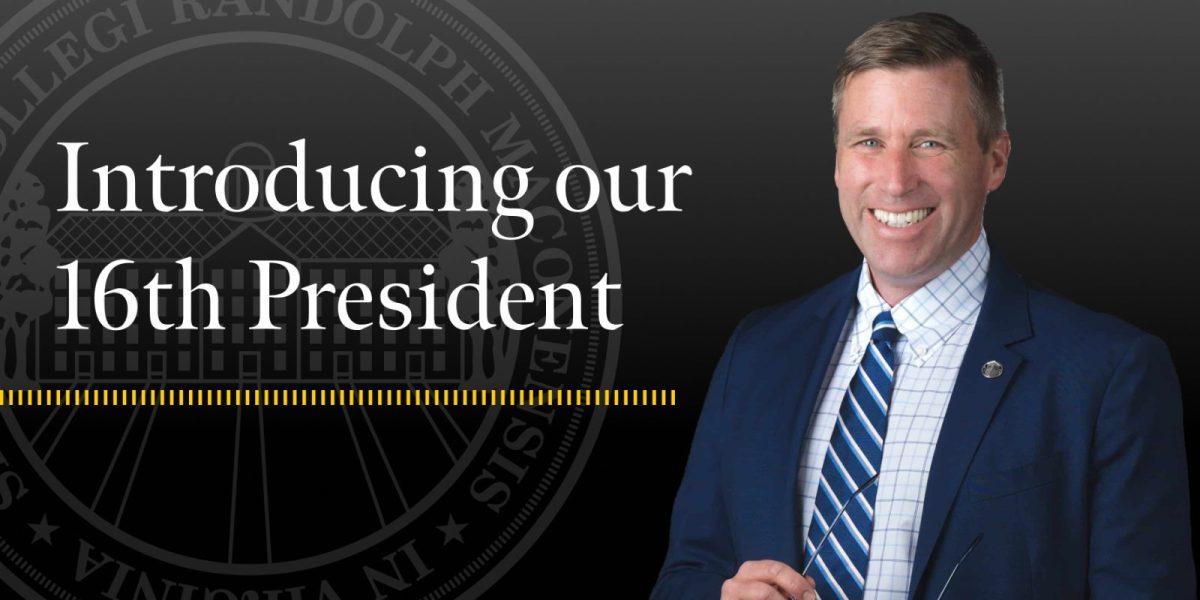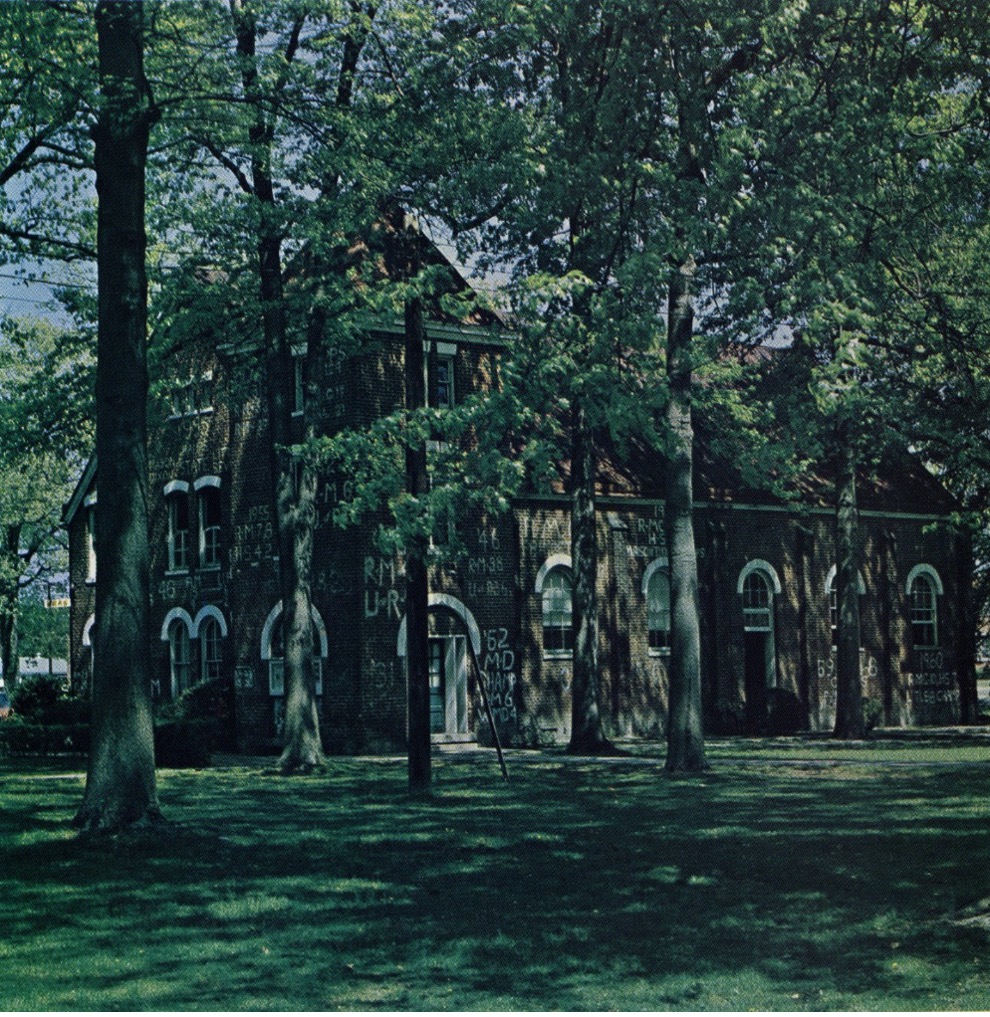Upcoming President’s Forum is an opportunity for students to comment on SRA
The President’s Forum will take place on Monday, March 20 at 5:30 in the Suntrust Room (second story of Brock Commons).
March 17, 2023
The College’s Student Government Association hosts a President’s Forum every semester, where students may present questions and comments about the College to President Lindgren and the Cabinet. This semester, the forum doubles as the public comment period for the Cabinet’s Strategic Resource Allocation (SRA) recommendations. Here’s what you need to know about the SRA and why YJ News encourages students to attend the forum on Monday, March 20.
How the SRA can change R-MC.
The Strategic Resource Allocation process promises to create the College’s first comprehensive strategic plan since 2010. It consists of an “all-inclusive review of the College’s resources, including budget, staffing, and space” per the Cabinet’s preliminary recommendations and could lead to significant changes to the College’s academic programs and student services.
The process began in April of 2022 with the formation of two task forces to evaluate R-MC’s academic and support programs. The task forces consist of faculty and staff and were required to place 20% of all programs by cost into each of five quintiles based on criteria like the number of students involved in the program and its reliance on adjunct faculty. The task force’s quintile distributions are only recommendations and do not represent a final decision about the fate of any particular program.
“We would never cut 20% of programs at the bottom, and we were never going to be able to invest in 20% of programs at the top,” said Provost Alisa Rosenthal. “The idea was to get a relative sort, not an absolute one. So there are absolutely programs that both task forces put in the fifth quintile that they said to us, ‘Look, we’re not excited about this, but you made us have a fifth quintile.’ To which we would say, ‘Yes, and we know that.’ Which is why we’re not just grabbing those and running with them.”
The Cabinet synthesized the task force’s distributions into a set of preliminary recommendations which are “meant for community review.” After receiving public comments, the Cabinet will present finalized recommendations to the Board of Trustees, who will make the final decisions for faculty and staff to implement.
The March 20 forum is the primary opportunity for students to raise questions and concerns directly to the Cabinet, or they may email [email protected].
Why now?
Rosenthal says a part of the reason for the SRA is to provide a more strategic assessment than the annual budget process allows. Additionally, the SRA will inform the upcoming strategic planning process. “On a year to year basis, we put together a budget, and it tends to look at the things we already do and assume we’re going to continue doing them,” she said. “But one of the things that the Board of Trustees and the administration felt we were really overdue for was taking that larger, more holistic look.”
The SRA is part of a broader trend in higher education and particularly among liberal arts colleges. It comes as other liberal arts colleges in Virginia are facing backlash for cutting programs.
Schools are anticipating a “demographic cliff” beginning in the 2025-26 school year as declining birth rates lead to fewer high school graduates seeking a college education. The drop in tuition revenues means these colleges will have less revenue to fund its academic programs.
“If you think about what was going on in 2008 and 2009, this is the recession,” Rosenthal explained. “This is the people thinking in those years of the recession, about having [fewer] kids. 18 years later, that number dips, and that takes a while to come back.”
Students are disengaged with the process.
Students have received two emails about the SRA from the Office of the President since February, including a link to the SRA’s email, which reports having received questions from “a handful” of students.
Abu Waligo ‘24 and Faith Hubbard ‘23 both said they have not read those emails and know very little about the SRA.
“[The emails are] usually long and they don’t pertain to me,” said Hubbard. “Not that I don’t want to be informed, but truly, it doesn’t involve me.”
Waligo says emails from the president’s office need to catch his attention. “For me it depends on the title. You know, if the title’s like, ‘somebody passed away,’ I’m going to read that.” He explained that the subject lines of the emails about the SRA were unclear to him. “They should send a separate email saying ‘SRA’ and explain it to everybody.”
SGA’s president, Abi Detrich ‘24, says she’s heard concerns about the SRA from “a few” students and faculty members. “Concerns are more of, ‘oh, is my favorite professor going to be gone?” she said. “Or ‘my major is going to be canceled, and I’m not going to be able to finish,’ which is not the case.”
Provost Rosenthal emphasized that students will be able to graduate in their chosen programs no matter the outcome of the SRA. “Let me be as clear as I can,” she said. “Any currently declared major or minor will be able to finish their major or minor at Randolph-Macon College. That is both an ethical commitment of ours and an accreditation requirement.”
If an academic program is removed, it will be phased out over several years. New students will not be able to declare that program, but current students will graduate with their declared degrees.
Bella Cipollina ‘25 is a music education student. While she may finish her degree as planned, she worries that future students will not have the same opportunity.
“I’m concerned about music ed because currently I’m the only music ed student that is not about to graduate,” Cipollina shared. “So I am concerned that it will no longer be offered to future generations of YJs, and that would be really sad.”
Cipollina says she tried to read the Cabinet’s recommendations, but didn’t fully understand them. “Some of it I didn’t understand because it was complicated language. The only thing I really got from it is that they’re saying ‘maybe we’ll cut some majors.’ That’s kind of the only thing that I comprehended.”
The March 20 forum will be the first and most direct opportunity for any student to ask the Cabinet for clarifications and to advocate for programs they feel are important.
“If [students] are worried, and they are anxious, they can come to the provost, they can come to student government, they can come to the deans and express their concerns,” said Detrich. “Then come to the President’s Forum, where the Cabinet will all be there and be able to address their concerns.”
Stay tuned for YJ News’ ongoing coverage of the SRA process.




















